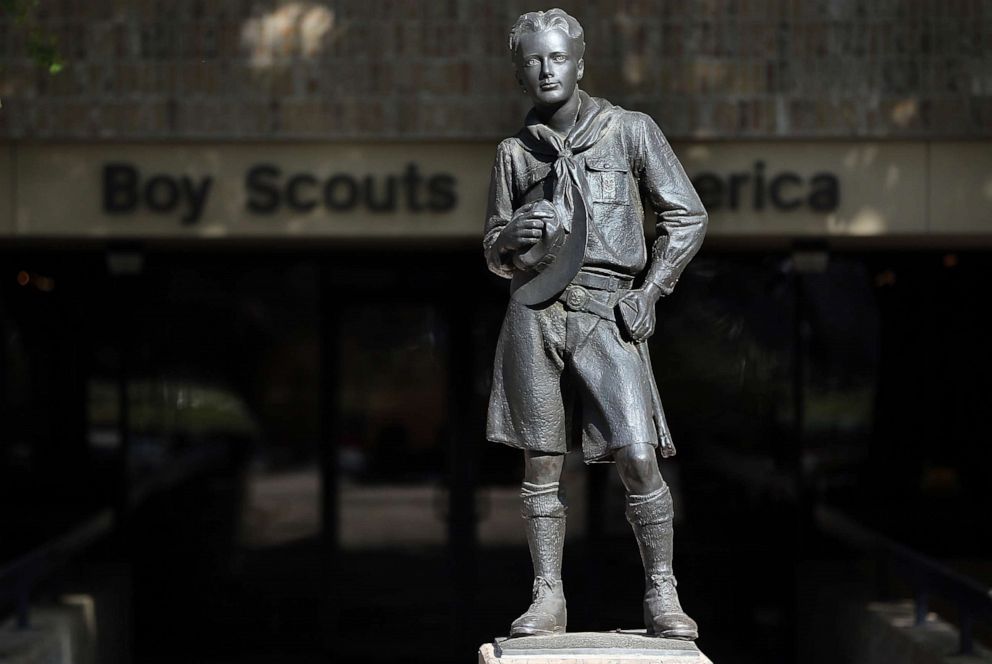Boy Scout officials say they don't track what happens to ousted troop leaders after abuse claims
Executives at the storied organization addressed their abuse database.
Boy Scout officials stressed that their child abuse tracking system works – in spite of the reports of more than 12,000 instances of abuse – because it is quick to kick out alleged offenders and keep them from re-joining the Scouts.
That said, leaders of the storied organization admitted that they don’t track where the alleged offenders end up going after they report them to authorities – just so long as it’s not back at the Boy Scouts.
During a call with reporters Wednesday, Boy Scouts of America leaders explained their internal volunteer screening database, which has been in place for decades, and detailed how they have “a really low threshold" for putting someone in that database.
“They don’t need to have been arrested or convicted of a crime to be added to this database," said Mike Surbaugh, the BSA's chief scouting executive.
However, that low threshold was pointed to as the reason why the database is kept private. While Surbaugh said that every claim or accusation is reported to "the proper authorities,” Erin Eisner, BSA’s chief strategy officer, said that they don’t follow up with what happens to the ex-troop leaders once they’ve reported the claims to law enforcement.
“People are added to our volunteer screening database based on violations of our policies and even suspicion [of policy violations]," Eisner said. "We air on the side of protecting kids."
When asked why they don’t notify their communities of offenses made by ex-scout leaders, Eisner said that convictions are public record but "we don’t do any tracking after they are out of our program."
“Our concern is for the children within our program,” she said.

One of the bigger initiatives the BSA is publicly calling for is the creation of a national registry (similar to that of the sex offender registry), which would stop offending troop leaders from joining other groups that work with children.
The BSA has been plagued by talk of filing for bankruptcy for months, and that’s still on the table, according to Surbaugh, who said “our board is looking at all possible options" but has not made any decisions.
He did admit that "increasing lawsuits has put financial pressure on the Boy Scouts of America," and said that they are "very aware of the changes in the law" in states like New York, where the new Child Victims Act will open organizations like the BSA up to potential lawsuits in August, when statutes of limitations are waived for a year-long period.
“Our board is constantly evaluating our position," Surbaugh said.
The officials did not address the abuse numbers which were publicized Tuesday, after a lawyer cited court testimony from an expert who has been working with the Boy Scouts for years who said that there are 7,819 individuals who have files in the Boy Scout's volunteer database, meaning "they believe were involved in sexually abusing a child."
But on Wednesday, Surbaugh did share that there were five known abuse victims out of the 2.2 million participants in the Boy Scouts in 2018. Surbaugh said that any single case of abuse is too many, but the organization is glad that the rate of abuse in the Boy Scouts is lower than in the general population.




